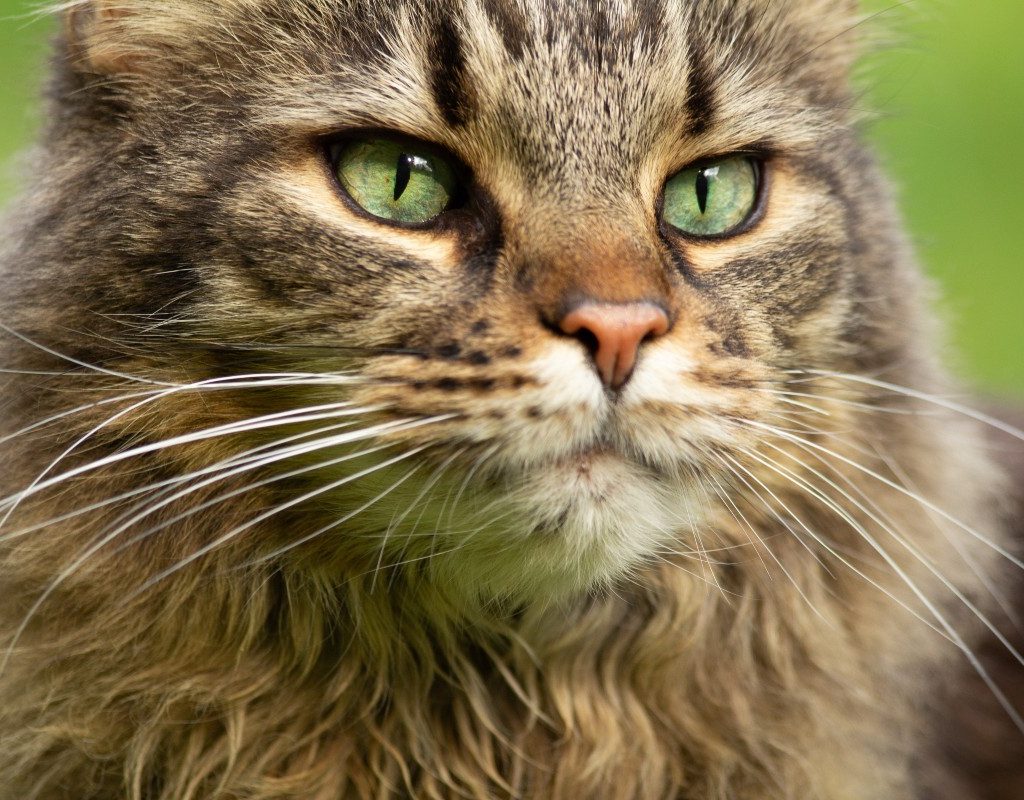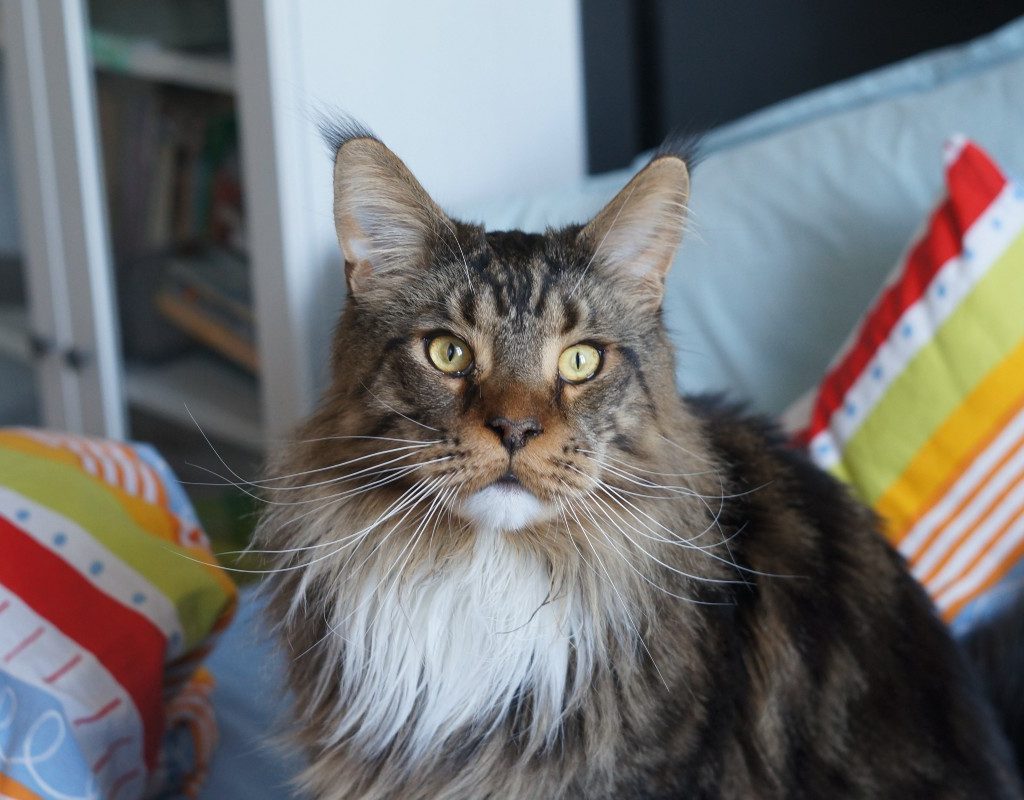Maine Coon cats are big babies—in a good way. They have sweet depositions and can be social animals. They’re also bigger than your typical tabby. Males generally weigh between 12 and 20 pounds, while females usually weigh in at 8 to 12 pounds. A Maine Coon’s copper, green, or gold eyes will captivate you as you stare into them during snuggle sessions.
Maine Coons tend to require a good bit of grooming, as they have long fur. However, those frequent grooming sessions offer a chance to bond with your animal. It’s hard not to get attached to a Maine Coon. Once they’re in your life, it may be difficult to think about life without them. You can’t help but wonder, “What’s a Maine Coon’s lifespan?”
That answer varies from Maine Coon to Maine Coon. However, there is an average. Let’s consider that and learn what pet parents can do to help their kitties make the most out of the time they have.

Average lifespan of a Maine Coon
Experts say Maine Coons generally live between 12 to 15 years. It’s important to remember that’s an average. Some Maine Coons live longer lives, and others, unfortunately, live shorter ones.
Maine Coons are prone to certain diseases and conditions that can affect their health and quality of life, including:
- Heart disease
- Patellar luxation (a type of knee problem that may be inherited)
- Obesity
- Hip dysplasia
- Gingivitis
- Kidney problems
Not every Maine Coon will experience these conditions, but it’s always good to speak with your vet about concerns and potential symptoms.

Ways to keep your Maine Coon happy and healthy
As humans, we inherit disease risks from our parents. No matter how great your diet and exercise regimen is, you still might be at a higher risk for diabetes or heart disease based on your genetic makeup. The same is true for cats, including the Maine Coon. As much as you’d love to protect your kitty from every health problem, that’s not possible. However, you can take steps to help mitigate the risks as best you can. Here are some expert-backed tips for caring for Maine Coons.
Feed them a high-protein diet
Maine Coons are larger than most breeds, and they need the right type and amount of food to fuel their bodies. Vets suggest feeding them a high-protein diet.
While the Maine Coon is a larger breed, they still can be overweight. Discuss with your vet the amount of food to give your Maine Coon.
Get them to exercise
Exercise is also a part of weight management for cats. The good news? Exercise gives you a chance to play with your fur baby. Try playing rousing games with a fish pole. If your Maine Coon is more of a loner, balls and toy mice can be fun for them to chase around your home.
Provide dental care
Maine Coons need to be able to eat the high-protein diet they require. That can be tough if they’re experiencing pain from dental problems. Maine Coons are prone to gingivitis or inflamed gums. Brushing your cat’s teeth at least three times per week can help keep this issue at bay.
Visit your vet
Vet visits aren’t always a walk in the park for cats, but they’re essential. Your vet can detect health issues early, improving outcomes. The vet also will prescribe monthly preventives to keep parasites away and will administer vaccines to help your furry friend avoid unnecessary diseases.
Keep your Maine Coon indoors
Your Maine Coon may love to watch “Cat TV” by staring out a window and “chirping” at the birds outside. However, the safest place for your kitty is inside. Indoor cats can live more than seven times longer than outdoor ones. Maine Coons may be big, but these pets are lovers, not fighters. Your home is a safe haven from predatory animals as well as from busy streets. Provide plenty of toys to keep your kitty engaged and happy within the safety of your home.
Maine Coons make great furry friends. They’re warm and affectionate. They’re bigger than many other breeds, but that just means there’s more of them to love. A quality diet and exercise will keep them fit and happy, and regular vet visits will help ensure all is well.




